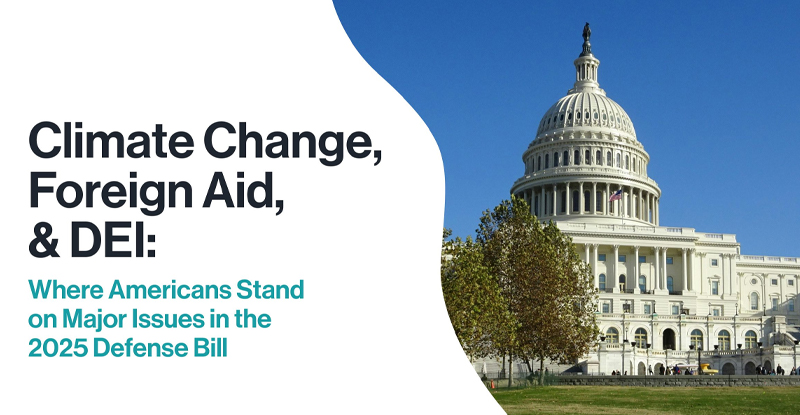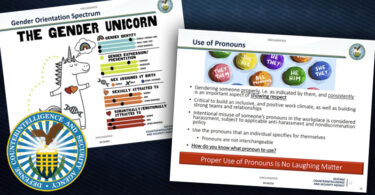Another signal. Resonate, an AI platform tracking public sentiment provides this report showing most Americans want to get rid of DEI in DOD, don’t consider climate change to be a major national security issue like the current DOD policymakers say it is, and are not that interested in sending money to Ukraine. Listen to the People.
Climate Change, Foreign Aid, & DEI: Where Americans Stand on Major Issues in the 2025 Defense Bill (Resonate AI)
While the hubbub surrounding the 2024 presidential election has dominated news cycles for the last few months, congressional business has taken a back seat in the minds of voters.
However, as America prepares for a changeover in the White House, business as usual is expected to resume—and that includes the National Defense Authorization Act (NDAA), a must-pass bill that’s languished for months.
Although the Republican-led House voted to pass the bill, the Democrat-led Senate, accusing their counterparts of adding too many “culture war” provisions, is expected to push for compromises on certain issues throughout November, with the aim of reaching a resolution and passing the bill by the end of the month.
That doesn’t leave advocacy professionals much time to gauge public sentiments on the major issues in the bill and develop a strategy to move their platform forward. Fortunately, Resonate AI-powered data empowers you to get the insights you need to plan smarter and act immediately.
In this blog, we’ll look at three major issues that are holding up the passage of the NDAA as it exists in its current form—as well as what Americans who care about the nation’s defense actually think about them and how you can use this information to successfully target and motivate grassroots audiences.
Issue #1: Ban on DEI
The 2025 NDAA would eliminate the Defense Department’s chief diversity office and any other DEI-related offices in individual departments and the military. A permanent hiring freeze would be placed on any DEI-related jobs as well.
According to Resonate’s AI-powered data engine, rAI, 42% of Americans who care about national defense either strongly or somewhat agrees with a total DEI ban in the military, while 33% say they neither agree nor disagree with the measure. Only a quarter strongly or somewhat disagree.
Issue #2: Foreign Aid to Ukraine
Whether Congress should continue to provide funding or not as Ukraine enters the last few months of the third year of its conflict with Russia has remained controversial. A ban on funding for Ukraine was introduced in the first iteration of the NDAA. Although it was defeated, the revised bill has to go through both houses of Congress again, meaning the issue could be revived.
The public is nearly evenly split between whether they believe aid to Ukraine should be decreased (38%) or kept at current levels (37%). Just 25% of Americans who care about defense support an increase in funding to Zelensky and his government.
Issue #3: Funds for Climate-Change-Related Executive Orders
Since 2017, after declaring climate change a direct threat to national security, Congress has included measures designed to both counter it and balance the military’s ability to function in spite of it in the NDAA. The 2025 version of the NDAA currently sitting with the Senate scales back some of the investment into mitigating the risks climate change poses to the United States.
Although Democrats have repeatedly criticized Republicans for their policies related to climate change, the audience of Americans who care about the nation’s defense doesn’t consider reducing climate change to be a top priority.
When queried about the top five topics they felt most passionate about, only 21% were actively engaged on the issue of climate change. A significant 29% did not support reducing climate change at all, while 26% expressed ambivalence and a lack of engagement with the issue.
Media Planning Tips
If you’re ready to target this audience, it’s crucial to know where to find them. Resonate’s AI-powered data platform shows Americans who care about defense are most heavily engaged on television—both traditional cable and streaming platforms. Internet videos are a close runner-up. Only 10% are heavily engaged on social media, with a whopping 56% lightly engaged.








Leave a Comment